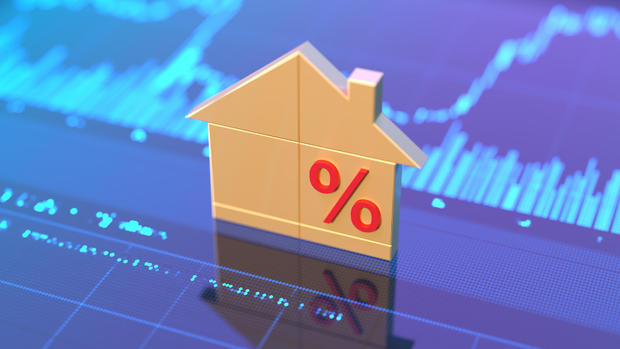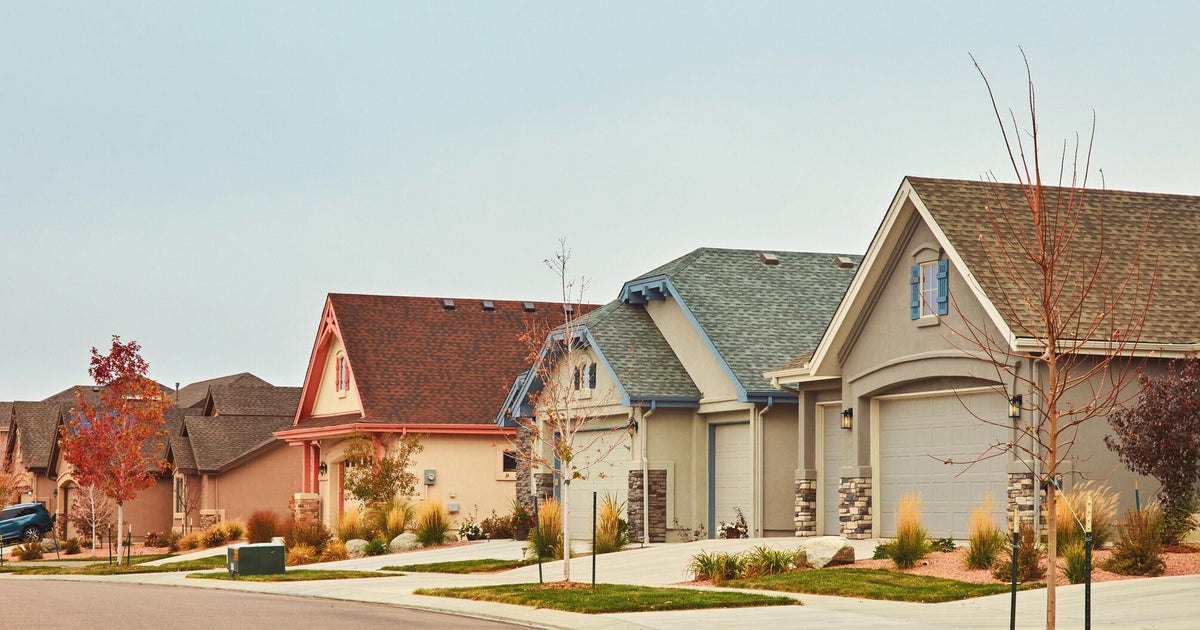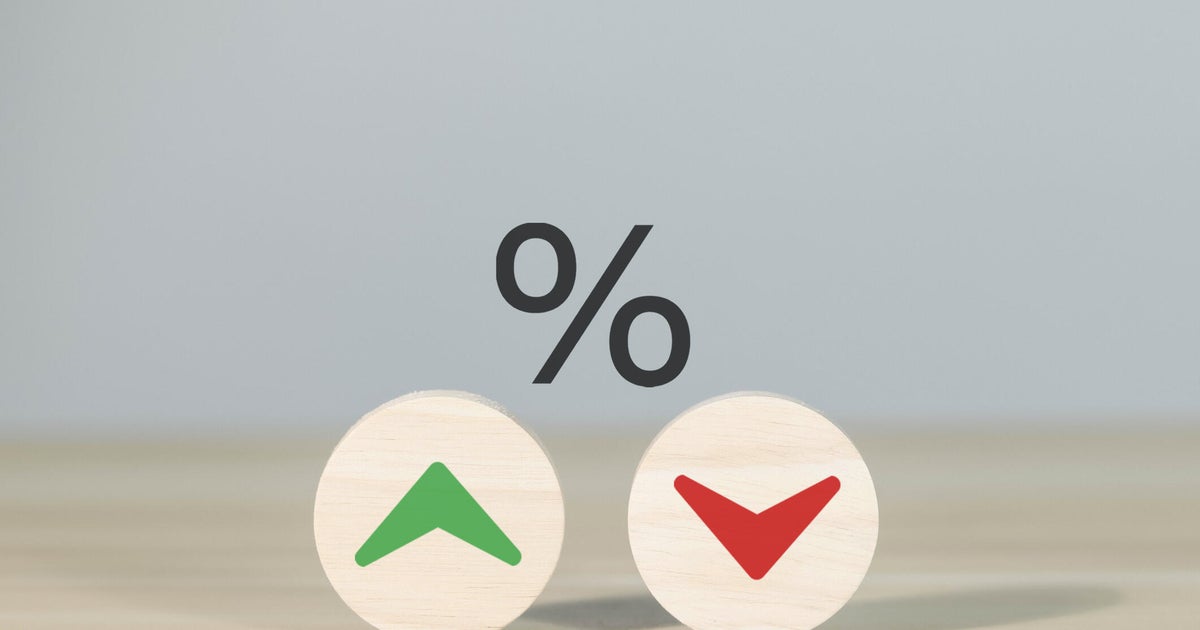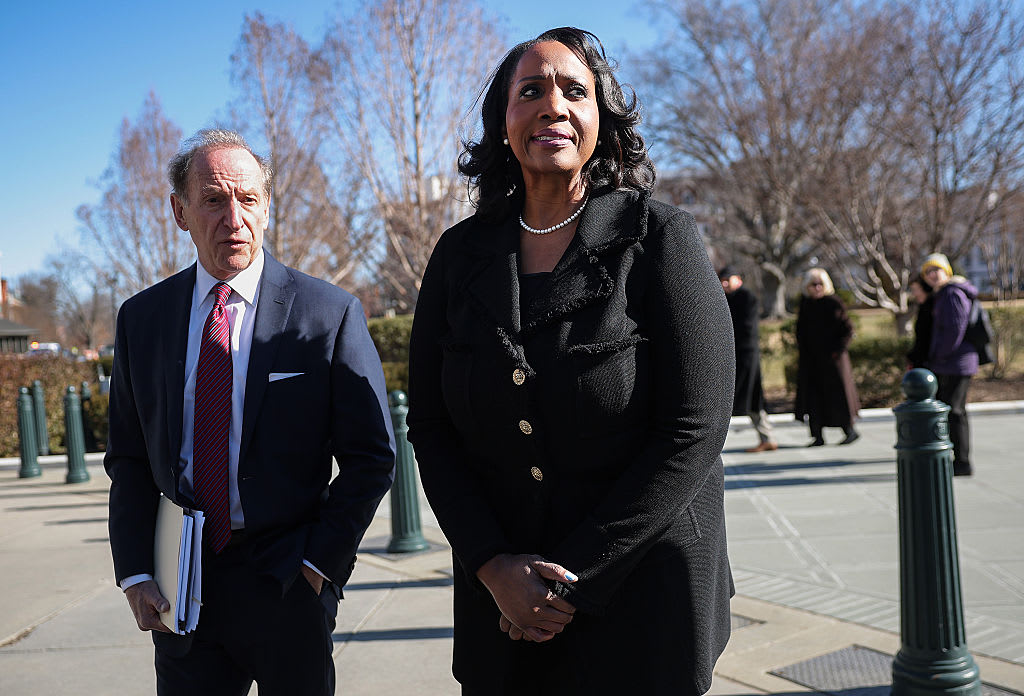How far will mortgage rates fall when the Fed cuts rates? Here's what experts say
While more stable over the past nine months, the economy was highly volatile from 2020 through the first half of 2023.
After the pandemic hit, the Fed dropped the fed funds rate to zero and demand surged in the housing market causing home values to skyrocket. Then, inflation began to run away and the Fed hiked rates 11 times. Meanwhile, the average 30-year fixed mortgage interest rate went from 2.8% in late 2021 up to a 22-year high of 7.79% in October 2023.
Since December, mortgage rates have been more stable, fluctuating between 6.5 and 7%. However, many are now wondering if rumored Fed cuts will change that.
"As the market gains more certainty and as inflation curbs, it is very likely that there will be rate cuts this year," says Scott Haymore, senior vice president and head of mortgage capital markets and product management at TD Bank. "Currently, Fed Funds futures contracts have three rate cuts built in starting in the second half of this year," he says.
If Fed rate cuts do happen as many expect, how far can you expect mortgage rates to drop, if at all? We asked some experts for their rate predictions.
See how low of a mortgage interest rate you could secure here now.
How far will mortgage rates fall when the Fed cuts rates?
Here's where three experts predict mortgage rates are heading:
- Around 6% or below by Q1 2025: "Rates hit 8% towards the end of last year, and right now we are seeing rates closer to 6.875%," says Haymore. "By the first quarter of 2025, mortgage rates could potentially fall below the 6% threshold, or maybe even lower."
- Hold steady through 2024: Afifa Saburi, a capital markets analyst for Veterans United Home Loans, doesn't think rates are going to drop much this year. "Mortgage rates won't fall much from where they are today because the rate cuts that the Fed has penciled in are already priced in by the markets. This means that almost all of the rate relief that we would see from rate cuts is already here," Saburi explains.
- Hold steady through mid-2025: Jeremy Schachter, branch manager at Fairway Independent Mortgage Company, says he expects rates will stay in the higher 6% range and won't fall much in 2024 or even early to mid-2025. "With goals of the Federal Reserve to get inflation around the 2% mark, I don't expect the Feds to lower rates until September or later in 2024," Schachter says. "Unfortunately, we still have to have a bit more pain in the economy with higher unemployment to see the Federal Reserve lower rates."
The bottom line? While rates may drop modestly, we likely won't be getting back to the 3 to 5% rates that were the norm from 2010 to 2020 in the upcoming year.
Learn more about today's mortgage rates online now.
Should you wait to buy a home?
If you find a great home and the financing fits into your budget, experts say you typically don't want to wait.
"The best advice is still: When you find a home you love inside your budget, buy it. Mortgage rates are unpredictable but, right now, home values are not," says Dan Green, chief executive officer at Homebuyer.com. If rates do drop, you can always refinance to secure a lower rate but you won't always be able to buy a particular home.
You should also consider the opportunity cost of waiting. "On average home appreciation is between 4 and 5% each year. If you decide to hold off until 2025, how much will that home be worth vs. purchasing it now?" asks Schachter. He explains that if you decide to wait and time the market, a home that is worth $500,000 now could have appreciated $25,000 in 2025 (a 5% increase). "The adage, buy the home, date the rate is a perfect example of this scenario," Schachter added.
A drop in rates also often causes more buyers to enter the market which drives up home prices. "I believe we will see rate cuts come in the fall if at all this year. Along with that, you will see buyers come back to the fray and it will make competition even harder in a housing shortage-dominated market. Yes, rates will be lower but prices may be much higher," predicts Ralph DiBugnara, president of Home Qualified and senior vice president at Cardinal Financial.




